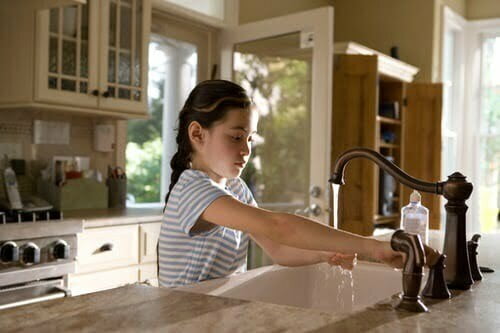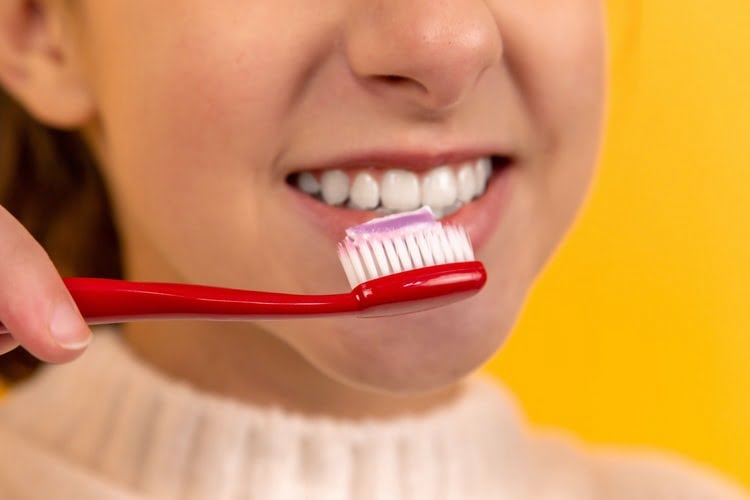10 Good Hygiene Habits you Should Teach your Kids
What is Personal Hygiene?
The personal hygiene is the set of measures for cleaning and care of the body, whose purpose is to prevent the onset of disease. It is how you care for your body. You should teach some good hygiene habits to your childrens. This practice includes bathing, washing the hands, brushing the teeth, and much more. Every day, you come into contact with millions of germs and viruses. They can attack on your body and they may also make you sick.
The acquisition of healthy hygiene habits is essential for health and it is necessary that both at home and at school, we are capable of transmitting their importance to kids. With one good hygiene is prevented from becoming ill in many cases and is encouraged own well-being and interpersonal relationships.
1. Have your own personal Hygiene supplies:
This is the first step in getting you used to good hygiene habits. From a very young age, children must have their own toothbrush and toothpaste, comb, soap or towels, and feel responsible for them. In addition to the ones you have at home, it is important to encourage your child to carry a small daily cleaning bag with a disinfectant soap, a brush and toothpaste, especially if your child eats at school.
2. Wash your hands and nails:
Hands are one of the most important vehicles for the transmission of germs and infections, so great care must be taken to ensure that they are always clean. They have to learn how to properly wash their hands with soap and water, especially before handling food and eating, after handling pets, before and after using the bathroom and, of course, every time they are dirty.
For the nails, there is the option of using a special brush for children, which has the softest bristles. Finally, to complete, they have the resource of using a disinfectant gel, which they can make themselves with the help of an adult (any family member), and always carry it in their toiletry bag.

3. Take a daily shower or bath:
Sometimes children avoid taking a bath. However, if bath time turns into fun, it won’t be difficult to establish a routine. As they grow older, they must be taught how to wash each part of their body well so that they acquire autonomy. It is preferable to take a bath at night and at the same time, before dinner.
4. Clean your feet well:
In summer children spend a lot of time barefoot. When the cold arrives, their feet are always ‘locked’ in shoes. Therefore, there is a greater risk of them, coming into contact with germs or fungi. This is a good way to explain to children why their feet smell a bit bad. And for that reason, they require thorough hygiene all year round.
After teaching them, to wash them well everywhere, the sole, the instep and between the toes, it is essential that we convey the importance of drying them thoroughly. In humidity, it is already known, microorganisms proliferate. Furthermore, in summer, special care must be taken in the pool, to avoid the appearance of fungi. Here’s Effective Communication is Crucial for a Healthy Relationship.
5. Caring for your hair properly:
It is not necessary to wash your hair every day, but you do need to keep it neat. To do this, children should be taught to brush their hair daily and, if they are long, to comb it. When they are old enough to start washing it on their own, they have to learn to soap it and, above all, rinse it properly so that no soap remains. You will have to be aware of them for some time and supervise that they have washed their hair properly, but they will end up doing it correctly on their own.
6. The Hygiene of the ears:
The best way to keep this part of the body clean is to take advantage of a bath that includes head washing. When it comes to drying, you have to go over the ears well with a towel, behind and between the folds. We can dry the ear too, carefully. But we should never insert swabs or any other object into the ear. And much less let them do it alone. This is something that all doctors advise against. Because, apart from the fact that we run the risk of introducing the earwax further to the bottom, we can cause damage.
7. Blow your nose:
The colds, allergies and colds produce mucus (nasal discharge), and excess can block the nasal passages and make breathing difficult. To remove mucus (phlegm), children must be taught to blow their noses. It is necessary to always carry clean tissues and avoid touching your nose with dirty hands.
8. Cut your nails:
The best advice for children to keep their nails short because when they are long, there is more room for bacteria to accumulate. And we already know that the hands often go to the eyes, nose, ears and mouth. In addition, this way we will avoid having the temptation to bite them, which would increase the risk of infections.
When they are young, of course, an adult should take care of them. We can take advantage of the moment of the bath, in which they are usually entertained and at ease. In addition, they will link it with one more routine of personal hygiene. Ideally, do it right after; this way your nails will be softer.
During cutting the nails, those of the hands should be cut making a small curve. On the other hand, on the feet, the cut has to be straight, to prevent them from sticking to the sides as they grow. Finally, we must emphasize that they never pull a skinny. It can be very painful and they would get a wound, with the risk of infection. You might also like; Love, Relationships, and Our Lives | A Guide to a Healthy Relationship.
9. Brush your teeth after every meal:
Brushing their teeth after every meal is a fundamental habit that children have to learn from an early age to prevent cavities, bad breath and possible diseases. Over 18 months they should be taught only with the brush so that they get in touch with the oral hygiene routine. From 3-4 years old, they can use special toothpaste for children.

It is convenient to be aware that they do not forget to brush their teeth and supervise that they do it correctly. Brushing before sleeping is the most important since it is at night when the proliferation of bacteria is most active. Dentists advise that the process last around 10 minutes.
Moreover, we have extracted 5 basic tips to brush correctly for all ages. These are the steps for a correct brushing:
- Move the brush in vertical movements up and down. It should cover the gum line, the teeth and the junction between them. And brush your teeth in front and behind as well.
- For the chewing area (the tops of the molars) use short horizontal, back-to-front, or circular motions, gently.
- Cleanses the tongue, inner cheeks and palate.
- Clean the space between your teeth by using dental floss.
- Finally, rinse well your mouth with a little water to remove any remaining toothpaste.
10. Maintain Hygiene in the Toilet:
When children begin to go to the bathroom alone, they must learn to clean themselves well, since the genitals are a part of the body that requires special attention in order to avoid possible infections. After defecating, you must clean yourself thoroughly using enough toilet paper so that there are no remains. Remind them that the last piece of used toilet paper should be clean.
It is very important that girls are aware that they must clean from front to back so as not to drag the remains of stool into the vagina. After using the toilet, they have to flush the toilet and check that it is clean. Finally, it must be emphasized that after attending the toilet they should immediately wash their hands with soap and water.
I hope you liked and will try to follow these personal hygiene habits!
You might also like:
How to Improve Your Self-Esteem as a Woman?
The Role and Importance of Modesty (Haya) in Islam and Social Life.
When we were Kids | Maybe we were the Last Lucky Generation on Earth.
